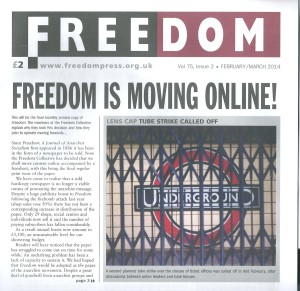The role of the European Committee of Social Rights (the Committee) is to rule on the conformity of the situation in States Parties with the 1961 European Social Charter (the 1961 Charter) and the 1988 Additional Protocol (the Additional Protocol). The Committee adopts conclusions through the framework of the reporting procedure and decisions under the collective complaints procedure. These conclusions were published in January 2015.
Information on the 1961 Charter, statements of interpretation, and general questions from the Committee, are reflected in the General Introduction to all Conclusions. The following chapter concerns the United Kingdom, which has ratified the 1961 Charter on 11 July 1962. The deadline for submitting the 33rd report was 31 October 2013 and the United Kingdom submitted it on 30 October 2013.
Conclusions United Kingdom Articles 2, 4, 5 and 6 of the 1961 Charter
The report concerns the following provisions of the thematic group "Labour rights":
- The right to just conditions of work (Article 2)
- The right to a fair remuneration (Article 4)
- The right to organize (Article 5)
- The right to bargain collectively (Article 6)
- The right to information and consultation (Article 2 of the Additional Protocol)
- The right to take part in the determination and improvement of the working conditions and working environment (Article 3 of the Additional Protocol)
The United Kingdom has accepted all Articles from this group except Articles 2§1, 4§3, 2 of the Additional Protocol and 3 of the Additional Protocol. The reference period was from 1 January 2009 to 31 December 2012.
The conclusions on United Kingdom concern 13 situations and are as follows:
- 10 conclusions of non-conformity: Articles 2§2, 2§4, 2§5, 4§1, 4§2, 4§4, 4§5, 5, 6§2 and 6§4.
- 3 conclusions of conformity: Articles 2§3, 6§1 and 6§3.
Article 6 - Paragraph 4 - Collective action
Conclusion: The Committee concludes that the situation in the United Kingdom is not in conformity with Article 6§4 of the 1961 Charter on the grounds that:
- the possibilities for workers to defend their interests through lawful collective action are excessively limited;
- the requirement to give notice to an employer of a ballot on industrial action is excessive;
- the protection of workers against dismissal when taking industrial action is insufficient.
Article 5 - Right to organize
Conclusion: The Committee concludes that the situation in the United Kingdom is not in conformity with Article 5 of the 1961 Charter, on the ground that legislation which makes it unlawful for a trade union to indemnify an individual union member for a penalty imposed for an offence or contempt of court, and which severely restricts the grounds on which a trade union may lawfully discipline members, represent unjustified incursions into the autonomy of trade unions.
Article 6 - Paragraph 2 - Negotiation procedures
Conclusion: The Committee concludes that the situation in the United Kingdom is not in conformity with Article 6§2 of the 1961 Charter on the ground that workers and trade unions do not have the right to bring legal proceedings in the event that employers offer financial incentives to induce workers to exclude themselves from collective bargaining.
Article 4 - Paragraph 1 - Decent remuneration
Conclusion: The Committee concludes that the situation in the United Kingdom is not in conformity with Article 4§1 of the 1961 Charter on the ground that the minimum wage applicable to workers in the private sector does not secure a decent standard of living.
Article 4 - Paragraph 2 - Increased remuneration for overtime work
Conclusion: The Committee concludes that the situation in the United Kingdom is not in conformity with Article 4§2 of the Charter on the ground that workers do have no adequate legal guarantees to ensure them increased remuneration for overtime.
Article 2 - Paragraph 2 - Public holidays with pay
Conclusion: The Committee concludes that the situation in the United Kingdom is not in conformity with Article 2§2 of the 1961 Charter on the ground that the right of all workers to public holidays with pay is not guaranteed.
Article 2 - Paragraph 4 - Elimination of risks in dangerous or unhealthy occupations
Conclusion: The Committee concludes that the situation in the United Kingdom is not in conformity with Article 2§4 of the 1961 Charter on the ground that it has not been established that workers exposed to occupational health risks, despite the existing risk elimination policy, are entitled to appropriate compensation measures.
Article 2 - Paragraph 5 - Weekly rest period
Conclusion: The Committee concludes that the situation in the United Kingdom is not in conformity with Article 2§5 of the 1961 Charter, on the ground that there are inadequate safeguards to prevent that workers may work for more than twelve consecutive days without a rest period.
Article 4 - Paragraph 4 - Reasonable notice of termination of employment
Conclusion: The Committee concludes that the situation in the United Kingdom is not in conformity with Article 4§4 of the 1961 Charter on the ground that notice periods are inadequate below three years of service.
Article 4 - Paragraph 5 - Limits to wage deductions
Conclusion: The Committee concludes that the situation in the United Kingdom is not in conformity with Article 4§5 of the 1961 Charter, on the grounds that: - it has not been established that the limits on deductions from wages equivalent to the National Minimum Wage are reasonable; the determination of deductions from wages higher than the National Minimum Wage is left at the disposal of the parties to the employment contract.
[Editors note: Submissions for these reports were submitted at the end of 2013; studied throughout 2014, conclusions drawn up and published this month January 2015.







